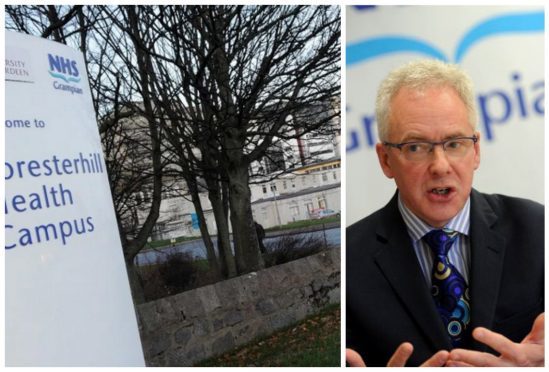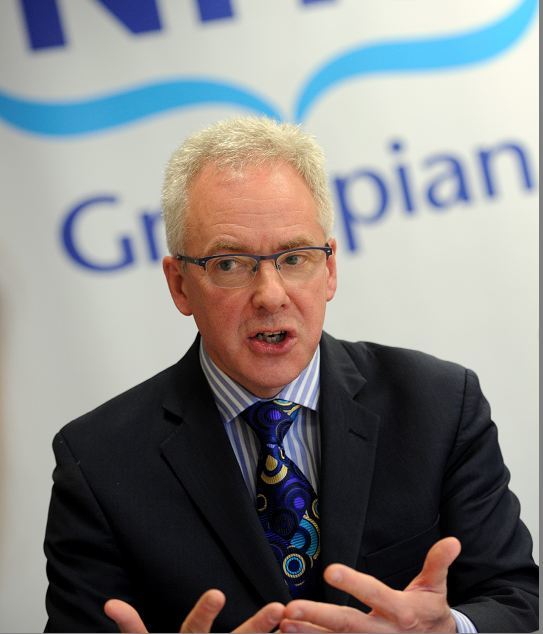A secret report on the behaviour of a group of medics at the north-east’s flagship hospital has revealed unnecessary operations were carried out on patients.
NHS Grampian chiefs asked the Royal College of Surgeons (RCS) in England to carry out the probe after “a dramatic break down” in team working at Aberdeen Royal Infirmary.
The inquiry was ordered just four months after the Queen’s Surgeon in Scotland Professor Zygmunt Krukowski and his consultant colleague Wendy Craig were suspended after an internal disciplinary review.
The pair remain suspended, amid claims from their supporters they were bullied and harassed after complaining about poor management.
The RCS team found that if “major changes” were not made in the surgical department there was “real potential” for the working environment to “impact on patient care”.
But last night Professor Duff Bruce, clinical lead of the general surgical department, said his staff were now “blossoming” since a complete overhaul of the way they work was carried out.
The RCS findings can now be made public after the Scottish Information Commissioner ruled the health board should disclose a further 4.5% of a heavily redacted report to The Press and Journal following two freedom of information requests.
The inspectors were asked to examine the behaviour of surgeons, as well as the outcomes of 16 operations – mainly on the gall bladder, liver and bile ducts– in September 2014.
Their report concludes there was “no information which suggested that the general surgical service was unsafe”.
But it adds there were a “number of areas” which needed “considerable improvement”.
One of the concerns was that four of the surgical cases involved what could, in retrospect, be seen “as questionable decision-making” about “pursuing further surgical treatment” instead of more conservative or palliative care.
The report states that “with the benefit of hindsight, the surgical treatment of these patients may not have been in their best interests”.
Further fears were raised over the communication between staff within the department at ARI.
The report said: “The team-working between the consultant general surgeons and their clinical colleagues appeared, generally, to be good.
“One area of team-working that was reported to be in need of improvement for many of the surgical units was communication between surgeons and ward nurses.
“There was clearly a need to review the way in which consultant surgeons link-in with nursing colleagues when carrying out ward rounds to ensure information is shared appropriately.”
Inspectors also raised concerns that the surgeon’s rotas were not efficiently organised, meaning about four could be on-call at any one time and not carrying out routine operations.
Last night, NHS Grampian chief executive Malcolm Wright told The Press and Journal he was aware how “serious” the outcomes of the report were but said he was “immensely proud” of how far the department had come.
He said: “From my point of view this emphasises the seriousness of the issues that we were faced with 18 months ago.
“What is within the review really highlights the fact that the department of general surgery faced a range of very serious issues around team-working, individual behaviours and the potential to impact on patient care.
“The surgeons’ report said that patient care had not been adversely affected but it had the potential to do so.
“I think also what we can say today is that since then the work of Professor Duff Bruce and his colleagues has been quite outstanding in addressing all of the recommendations of the report and making very substantial progress in all of them.”
Prof Bruce added: “We continue to change and continue to work. We have had an exciting journey over the last year and we will continue to use it as the springboard to a department that’s developing and blossoming all the time.”

